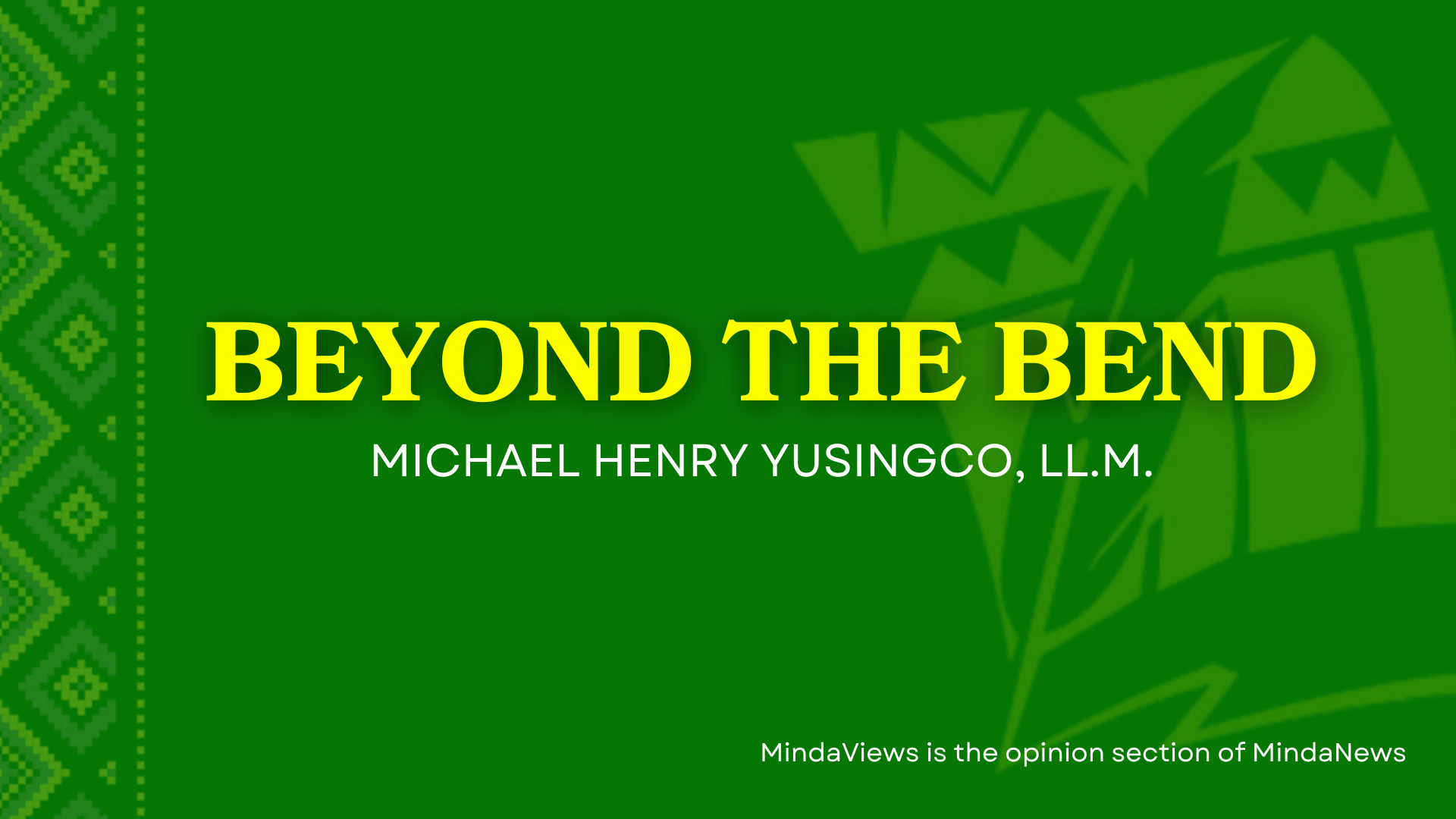BEYOND THE BEND: How can Sulu and BARMM co-exist?

“The Bangsamoro Organic Law was an enactment of Congress and not a direct output of peace negotiations.”
This is probably the most telling part of the Supreme Court’s decision in the case of Province of Sulu vs. Medialdea, et al. (G.R. No. 242255, September 9, 2024). The highlighting of the BOL as a piece of legislation signifies that the implementation of the ruling must be limited to the administrative structure of the Bangsamoro Autonomous Region in Muslim Mindanao (BARMM).
Correspondingly, the exclusion of Sulu from BARMM should instigate a search for ways to address the resulting administrative complications. Keeping in mind that the autonomy of BARMM is not at all compromised or diluted by the decision. This is true as well for the autonomy of Sulu.
The reality is the Supreme Court decision has brought about disruptions in the delivery of public services in the BARMM as it pertains to Sulu. For instance, basic education in the province has been under the purview of the BARMM’s Ministry of Basic, Higher and Technical Education since 2019.
Naturally, many regional leaders have raised the alarm on protecting the welfare of students and teachers in Sulu. The grave social ramifications in this instance requires a considered response from the BARMM government, the provincial government of Sulu, and the Department of Education. A knee-jerk reaction will only make the situation worse.
But while the three levels of government find a viable path forward, it is undeniable that maintaining the status quo would be the most beneficial immediate response. Leaving the BARMM budget crafted for the coming year unchanged would be a sensible act at this stage. This will certainly eliminate any anxiety troubling everyone concerned, especially learners and their parents.
The same thinking can be applied to current BARMM programs and projects in Sulu. Obviously, the overarching concern should be the wellbeing of the people relying on these public services. Political considerations must not factor here. For regional leaders, this can be a difficult proposition given the intensity of partisanship in local politics. Hopefully though, the Bangsamoro collective spirit prevails over political self-interests.
Pertinently, maintaining the status quo as far as BARMM and Sulu relations are concerned is sanctioned by the BOL. As per Article VI, Section 12 –
“The National Government shall ensure the protection of the rights of the Bangsamoro people residing in communities outside the Bangsamoro Autonomous Region and undertake programs for their rehabilitation and development. The Bangsamoro Government, in coordination with local government units where these communities are located and the appropriate national government agencies, shall provide assistance to enhance their economic, social and cultural development.”
From the perspective of the BARMM government, not making any drastic moves is clearly supported by the BOL. Notably, this provision of the law also calls on the national government to do its part in making sure the transition of Sulu out of the BARMM does not cause any more harm to its residents. Indeed, the combined effort to keep the status quo until after the 2025 elections, at the very least, is a legally sanctioned course of action.
The ultimate decision as to the continuance of BARMM programs and projects in Sulu must be made by the first elected Bangsamoro Parliament. It is not an easy task but the BOL does offer guidance. In any case, any move must also have the concurrence of the Sulu provincial government. A government-to-government accord will have to be made in this regard. Again, hopefully the Bangsamoro collective spirit becomes the driving force here.
While the administrative relationship between BARMM and Sulu has ceased, official engagements between the two local governments, given the deep historical ties present here, can never be discounted. For instance, the Bangsamoro Parliament can officially invite Sulu to be a permanent member of the Council of Leaders. This will certainly facilitate the enduring wholeness of the Bangsamoro community.
Ostensibly, BARMM and Sulu will now have their own pursuits. Which means they will have to deal with challenges in their own ways. Peace and order, poverty-alleviation, revenue generation, climate resilience, just to name a few. But an impenetrable wall need not be obstructing the two sides when dealing with these problems. Institutional partition does not automatically mean operational isolation.
Indeed, the prevailing ethos moving forward must be coordination and cooperation between the two local governments. It cannot be emphasized enough that this governance principle is prescribed by the 1987 Constitution, by the Local Government Code, and by the BOL. It is certainly justified by the enormous advantage it would bring for the respective constituencies of BARMM and Sulu.
(MindaViews is the opinion section of MindaNews. Michael Henry Yusingco, LL.M is a law lecturer, policy analyst and constitutionalist.)



No comments:
Post a Comment